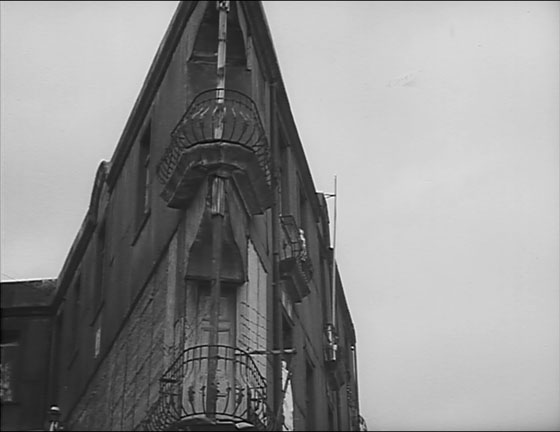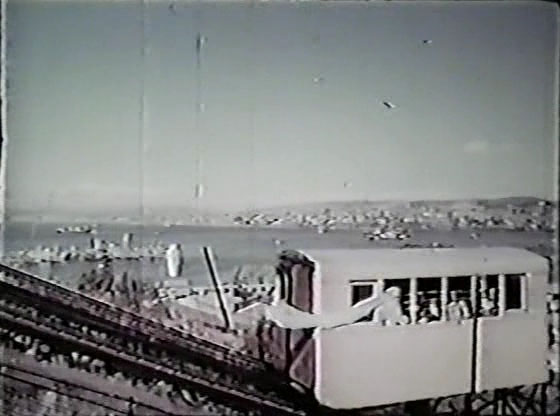UPDATE DEC. 2008: Wow, check out these stills from the new restoration. DVD box set will be out soon – check http://www.ivens.nl/ for updates.



—————
Directed by Ivens, narration written by Chris Marker, assistant camera by Patricio Guzman. Wow! Not to discount Ivens’s achievement, but this plays just like Marker’s travel documentaries. Definitely belongs with that group in some imaginary DVD box set, hopefully with far improved image quality over the awful version I just watched. I want to say this had better camera work than the Marker docs, but in this state, it is hard to tell.

A decade before the Battle of Chile events would begin, Ivens and crew give us an overview of life in this port city built on a series of steep hills. Focus is on things that affect the residents (like the funicular system) and events they participate in (huge annual fireworks show, a kite flying festival), not the popular tourist sites and historic buildings mentioned on wikipedia. Or maybe Ivens just hired a local tour guide and didn’t check wikipedia before going over there. A humorous tone to the commentary (when appropriate), shots of penguins, seals, pelicans and cats (no owls in town), a fire, some jump-cutting in line for the funicular. One very non-Marker-esque bit when a staged (I assume) bar-fight shatters a mirror and leads to a splash of blood, audio dissonance, a kaleidoscopic shot cutting to a burning pirate flag to introduce a history of colonialism in the state… awesome.
buildings that look like ships:

Wikipedia: The opening of the Panama Canal and reduction in ship traffic dealt a staggering blow to ValparaÃso, though the city has staged an impressive renaissance in recent years.

Senses of Cinema gives a shout out to Ivens:
… à Valparaiso has regularly been regarded as more of a Marker film than one truly belonging to Ivens. This reading prioritises and favours sound over image – a common mistake even when reading Marker’s wholly “owned” work – and fails to recognise the range and often explicitly lyrical nature of Ivens’ broader filmography.